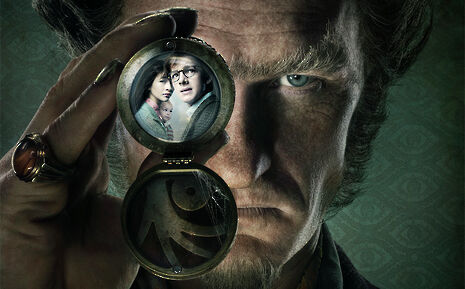TV Round-Up: Lemony Snicket’s A Series of Unfortunate Events
A metafictional delight is in store for viewers of this latest adaptation of Lemony Snicket’s work

A melancholic wit, fabulous villainy and sharp writing permeate Netflix’s newest original production. In other words, fears that this year’s long-form TV adaptation of Lemony Snicket would suffer the same fate as the well-meaning yet messy 2004 film are thankfully unfounded.
This is not to say that 2017’s incarnation of Snicket’s opulent suburban-steampunk-Gothic world is flawless. However, what remains clear throughout Netflix’s A Series of Unfortunate Events is that the show’s dark, twisted heart is in the right place. Chief director Barry Sonnenfeld and writer Daniel Handler have taken evident care to remain faithful to the books while extending Snicket’s world in ways that should please all audiences.
The opening credits quickly indicate the adaptation’s intentions and high calibre. The decision to list Daniel Handler – the man behind the Lemony Snicket persona – and Snicket as two separate entities in the credits hints at how deep viewers shall be immersed into the murky and, indeed, unfortunate waters of the Baudelaire orphans’ plight. The sepia tones, private investigator pin-board and Harris’s pleads for you to “look away, look away, look away”: so far, so good, so undeniably Snicket.
"The sepia tones, private investigator pin-board and Harris’s pleads for you to 'look away, look away, look away': so far, so good, so undeniably Snicket"
One of the sheer delights of the original books is Snicket’s acerbic narration and refusal to speak down to readers. Handler has wisely maintained Snicket’s narrative duty and placed him on screen alongside the Baudelaire orphans. While much of the hype surrounding the series focused on Neil Patrick Harris as Count Olaf (who is splendid), the casting of Patrick Warburton as Lemony Snicket is the production team’s best move. Warburton appears in a majority of scenes but never has dialogue with any other actor and, as a result, the detached yet omnipresent nature of the narrator makes him a tough role to get right.
After all, his narration ensures the plot remains cohesive. In A Series of Unfortunate Events’ case, an annoying narrator would mean an annoying show. Fortunately, Warburton’s deadpan comic delivery hits the right note every time. Paired with Harris’s excellent performance as Count Olaf, Warburton and Harris manage to pick up any slack from their child counterparts.
Much the same can be said for Joan Cusack, Aasif Mandvi and an hilariously put-upon Rhys Darby, the adult performers seeming to deeply relish the lines they are given. While Malina Weissman and Louis Hynes’s performances as Violet and Klaus are undeniably likeable, they sometimes offer stilted deliveries of Snicket’s wonderful dialogue or perilous moments. Especially when some of the later episodes slow down in pace, the child actors also seem to be just going through the motions. Nevertheless, over the four tales of this first season, smart teleplays and assured direction ensure viewers do not dwell for too long on their patchy performances. Although a high commendation must be paid to Presley Smith who is literally a babe-in-arms but, through some nifty superimposing in post-production, offers some golden facial expressions and reactions.
Upon watching the final scene of episode one, anyone familiar with the books will know that Handler and company have not remained entirely faithful to their source text. While some may feel that the early mention of the V.F.D. is something of a spoiler, the introduction of Cobie Smulders and Will Arnett and their subplot generates a faster sense of intrigue than anything found in the books.
Indeed, the cliffhangers found in The Bad Beginning, The Reptile Room, The Wide Window and The Miserable Mill excited old fans (like myself) and new fans alike when binging the series together on a wet, wintry evening. After all, Netflix are in the business of creating content that gets you hooked and, with A Series of Unfortunate Events, they have succeeded once again.
With aesthetic influences from Wes Anderson, Pushing Daisies and all things Burton, A Series of Unfortunate Events is bolstered by the originality and humour of its writing as well as some marvellous performances. Ultimately, Snicket’s very individual brand of entertainment has been given the treatment it deserves
 News / Cambridge academics sign open letter criticising research funding changes22 February 2026
News / Cambridge academics sign open letter criticising research funding changes22 February 2026 News / Supporters protest potential vet school closure22 February 2026
News / Supporters protest potential vet school closure22 February 2026 News / University Council rescinds University Centre membership20 February 2026
News / University Council rescinds University Centre membership20 February 2026 News / Hundreds of Cambridge academics demand vote on fate of vet course20 February 2026
News / Hundreds of Cambridge academics demand vote on fate of vet course20 February 2026 Comment / A tongue-in-cheek petition for gowned exams at Cambridge 21 February 2026
Comment / A tongue-in-cheek petition for gowned exams at Cambridge 21 February 2026








